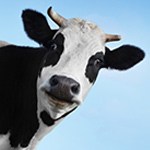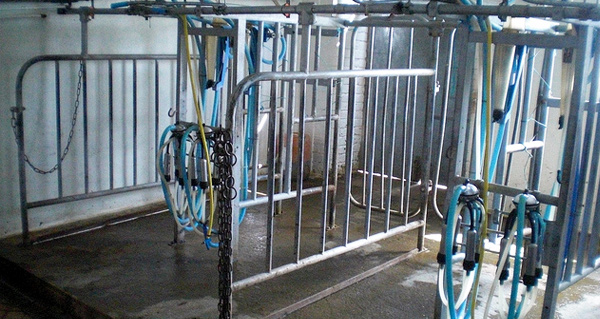Cleaning Milking Systems: The Key Principles You Should Know
 Like all sectors, the agricultural sector faces the same obligations in the areas of health and safety in work practices, and in hygiene procedures in food processing. But in order to run an efficient dairy farm, chemicals are required when it comes to cleaning milking systems.
Like all sectors, the agricultural sector faces the same obligations in the areas of health and safety in work practices, and in hygiene procedures in food processing. But in order to run an efficient dairy farm, chemicals are required when it comes to cleaning milking systems.
Why Is Cleaning So Important?
The use of chemical cleaners is sometimes criticized, but where cleaning and sanitizing is concerned, using the right products is the surest way to achieve the highest levels of cleanliness. The principal reason, of course, is that the scientific research has supported calls for strict production regulations, a key part of which is related to the level of hygiene in food production industries, both in terms of the operation’s environment and in the machinery and systems that are used.
Canada’s National Dairy Code (2013) lays out very clear standards of operation for all parlours and systems, from the permitted Bactoscan levels to the cleaning procedures that must be adhered to. The most significant of these regulations are:Paragraph 26 – Equipment that comes into contact with the milk during milking shall a) be rinsed, washed, rinsed and drained within one hour after use; b) when not in use, be stored in a manner that prevents contamination; and c) be sanitized and drained immediately before use.
Paragraph 28 – A person shall only use a cleaning agent, sanitizer or pesticide that meets the standards established by the Food and Drugs Act or the Pest Control Products Act, or that is in the reference listing of accepted construction materials, packaging materials and non-food chemical products published by the Canadian Food Inspection Authority (CFIA).
While adherence to the law is important, the underlying reason behind ensuring a thorough cleaning system is consumer health. When machinery is not cleaned, milk residues can build up, which is a breeding ground for bacteria – but there are other benefits:- maintain milk quality – your herd’s produce will be cleaner, safer and more palatable.
- improve facilities – milking parlours look better, thus impressing inspectors
- lower repair costs – with no residue build up, the system breaks down less often
- prolong equipment lifespan – a cleaner system will operate for longer
- provide larger profits – cleaning and sanitizing your milking equipment leads to lower bacterial count which will result in premium payments.

Effective Cleaning and Sanitizing
Different countries have set specific rules in the dairy industry (as with all) designed to protect animals, farmers, the consumer, and increasingly the environment. It means that while the principals are largely the same, the permitted techniques and cleaning products when cleaning and sanitizing milking systems can differ too.
But as with any set of cleaning regulations, there are specific standards that should be achieved. In Canada and North America, individual states and territories can have differences in their regulations too (though not usually significant), but there is broad agreement on what an effective cleaning system should deliver. In fact, there are 5 basic elements that make them up:- Kill bacteria
- Remove all soils from surfaces
- Be non-corrosive to equipment
- Be safe for operators
- Be environmentally friendly
Water and Chemical Use
All 5 of the elements mentioned above are important, but the root purpose behind cleaning at all is to remove all soils from the surface of the milking equipment. It is only through this that bacteria can be kept at bay and the quality of milk maintained at a high level.
There are several milk soils each of which come from the milk itself and are left as residual deposits on machine surfaces. Removing these soils properly can only be achieved with a mixture of water and chemicals.- Fat – milk fat starts to solidify below 40.5C to 43C (105F to 110F), sticking to surfaces.
- Protein – milk protein denatures at high temperatures and sticks to surfaces, building up in layers over time and becoming very difficult to remove.
- Lactose – milk minerals can combine with proteins to form milkstone.
Dairy Farm Chemicals From Velocity Chemical
Velocity Chemicals can help optimize your dairy operation with measurable improvements in operational efficiency, overall farm sustainability and milk safety and quality. We help dairy producers improve cleaning and sanitization, and provide high-quality udder hygiene and hoof care products needed to produce safe, wholesome milk. Our account representatives work with you to deliver innovative chemical products and programs, backed by our technical experts.
When it comes to washing milking equipment washing systems, the most suitable products include:VELOSAN – a Quaternary ammonium compound that is ideal for cleaning and sanitizing hard surfaces in food processing and industrial areas. CFIA approved, it’s an effective one-step sanitizer for non-food contact surfaces and food contact surfaces where a rinse is not required. It is a non-acid disinfectant with no phosphates, and a hard water and organic soil tolerance Cleans, disinfects, and deodorizes at the same time. VELOSAN is also recommended for use in hatcheries, poultry and swine premises to disinfect and clean equipment or heavy-duty vehicles, and other hard surfaces.
PHALANX – a water-based general purpose cleaner and degreaser specially formulated for the cleaning of dairy and food processing areas. CFIA approved, this solvent gives accelerated action in penetrating and dissolving grease and oil, ensuring the highest quality clean. PHALANX general purpose cleaning and degreaser is ideally suited to handling milking parlour and barn walls and floors, farm equipment, sidewalks and walkways.
Photos courtesy of Rose of Academe ![]()
Tags: Cleaning, Milking, Sanitizing, Systems




